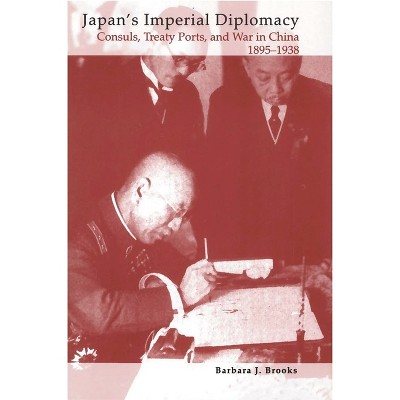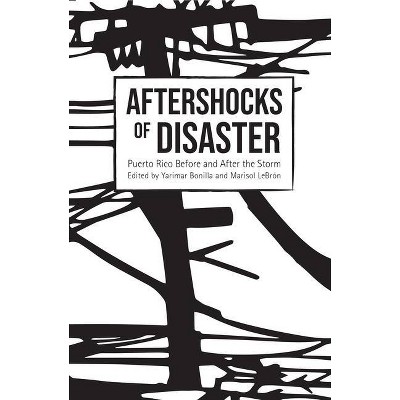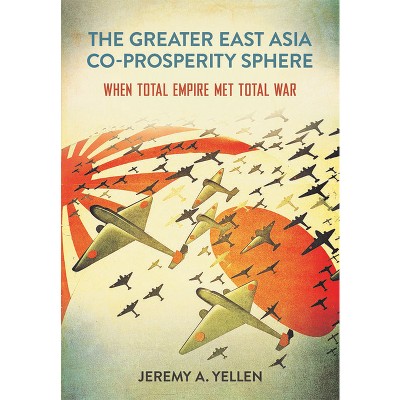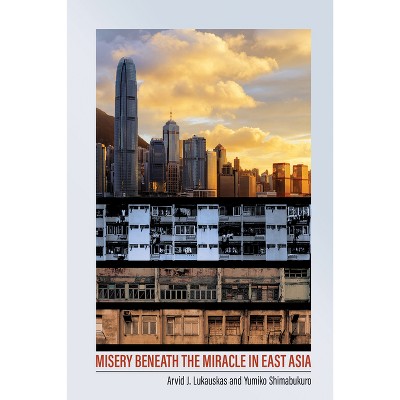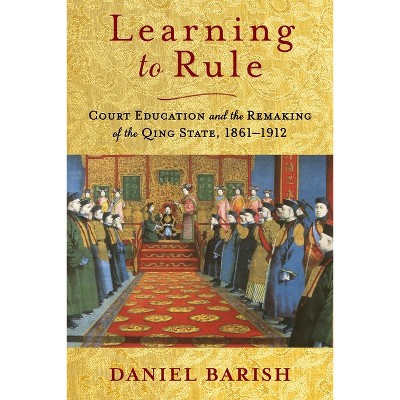Sponsored

Planning for Empire - (Studies of the Weatherhead East Asian Institute, Columbia Un) by Janis A Mimura (Paperback)
In Stock
Sponsored
About this item
Highlights
- Japan's invasion of Manchuria in September of 1931 initiated a new phase of brutal occupation and warfare in Asia and the Pacific.
- About the Author: Janis Mimura is Associate Professor of History at the State University of New York at Stony Brook.
- 240 Pages
- History, Asia
- Series Name: Studies of the Weatherhead East Asian Institute, Columbia Un
Description
About the Book
The origins and evolution of technocratic fascism in wartime Japan.
Book Synopsis
Japan's invasion of Manchuria in September of 1931 initiated a new phase of brutal occupation and warfare in Asia and the Pacific. It forwarded the project of remaking the Japanese state along technocratic and fascistic lines and creating a self-sufficient Asian bloc centered on Japan and its puppet state of Manchukuo. In Planning for Empire, Janis Mimura traces the origins and evolution of this new order and the ideas and policies of its chief architects, the reform bureaucrats. The reform bureaucrats pursued a radical, authoritarian vision of modern Japan in which public and private spheres were fused, ownership and control of capital were separated, and society was ruled by technocrats.
Mimura shifts our attention away from reactionary young officers to state planners--reform bureaucrats, total war officers, new zaibatsu leaders, economists, political scientists, engineers, and labor party leaders. She shows how empire building and war mobilization raised the stature and influence of these middle-class professionals by calling forth new government planning agencies, research bureaus, and think tanks to draft Five Year industrial plans, rationalize industry, mobilize the masses, streamline the bureaucracy, and manage big business. Deftly examining the political battles and compromises of Japanese technocrats in their bid for political power and Asian hegemony, Planning for Empire offers a new perspective on Japanese fascism by revealing its modern roots in the close interaction of technology and right-wing ideology.
Review Quotes
'Fascism' is a term of abuse today, but once it was an idea with a future, as Mimura shows in Planning for Empire.
-- "The Japan Times"Anyone interested in the role of reform bureaucrats in Japan and the perpetual debate over fascism will want to read this well-researched, informative, and stimulating monograph.
-- "Journal of the Royal Anthropological Institute"Drawing on a wealth of largely untapped primary materials and journals, the work focuses specifically on a group of elite bureaucrats, predominantly graduates of Tokyo Imperial University, and army staff officers who were the driving force behind the reorganization of the Japanese economy in the late 1930s and 1940s... Mimura's is the first English-language synthesis that traces the history of central planning in Japan from its inception in the corridors of power in Tokyo, through the experimentation period in Manchuria, to its final implementation in Japan. Mimura's contribution is particularly valuable precisely because it deals with men who were in a position to put their ideas into practice.
--Christopher W.A. Szpilman "Monumenta Nipponica"Mimura writes, moreover, with great economy, pinpoint clarity, and without embellishment or hint of hyperbole. If Planning for Empire does not, thus, aspire to 'best in show' honors for recent analyses of the Japanese empire, it deserves accolades as likely the most influential of the lot for its measured yet powerful confirmation of several critical trends in the study of early twentieth-century Japanese empire and war... it is a must read for all serious students of modern Japanese history.
--Frederick Dickinson "Journal of Japanese Studies"Mimura's detailed examination of the administration of Manchuria/Manchukuo offers a useful counterweight to Driscoll's portrayal of Kishi and Ayukawa as little more than misogynisticexploitative brutes... Mimura's dissection of Japanese techno-fascism--of its appeal across traditional political dividesof its incremental ideological genesis and of its ultimate failure--makes Planning for Empire a welcome addition to a new body of scholarship that has sought to resurrect fascism as an analytical tool for our understanding of mid-twentieth-century Japan.
--Martin Dusinberre "Journal of Colonialism and Colonial History"Roles played by the Japanese civilian bureaucracy in the course of Japan's militarization before WW II have attracted little attention in academia, in contrast with scholars' heavy focus on the Japanese military. Mimura fills this void with this first in-depth English-language analysis of the Japanese "reform bureaucrats" who, as prominent advocates of "techno-fascism," endeavored to realize their vision of a "managerial state" and "controlled economy" in prewar Japan.... Highly recommended.
-- "CHOICE"About the Author
Janis Mimura is Associate Professor of History at the State University of New York at Stony Brook.
Shipping details
Return details
Frequently bought together

Guests also viewed


